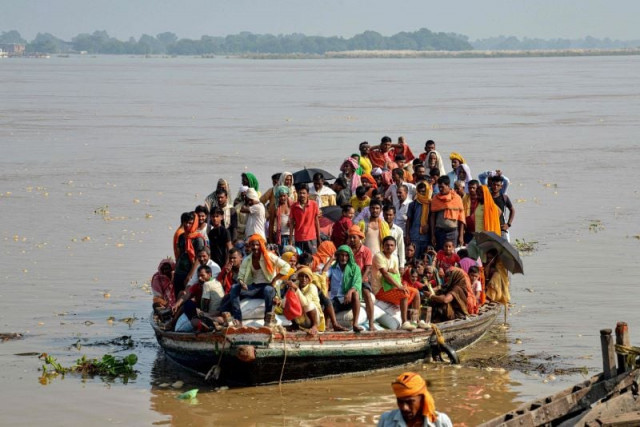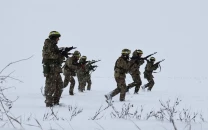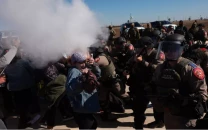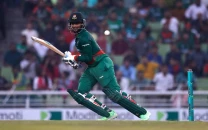Floods and landslides kill at least 15 in India’s Meghalaya after days of heavy rain
The affected population of 17,000 people from about 165 villages has been shifted to relief camps

At least 15 people have been killed in floods and landslides triggered by heavy rainfall in India's northeastern state of Meghalaya over the last four days, officials said on Monday.
More rain is expected in parts of the state through this week, with the India Meteorological Department forecasting "isolated heavy rainfall".
The weather department classifies rainfall between 64.5 mm (3 inches)and 115.5 mm (5 inches)as "heavy".
Those killed include seven members of a single family who were buried alive in the South Garo Hills district, two people whose vehicle was swept away by floodwaters, and a man killed by a falling tree.
"The situation is better now as the weather has cleared, and all bodies have been retrieved," Sanjay Goyal, commissioner and secretary of the state Revenue and Disaster Management Department, told Reuters.
The affected population of 17,000 people from about 165 villages has been shifted to relief camps, he said.
The death toll from floods in the northern parts of neighbouring Bangladesh, which shares a border with Meghalaya, rose to six on Sunday.
However, with no rain during the night, officials said the situation is improving and floodwaters are slowly receding.
"People are already starting to leave the shelters and return to their homes" said Torofdar Mahmudur Rahman, the district administrator of Sherpur, one of the hardest-hit regions.
The floods, which submerged vast swathes of farmland, have also caused significant damage to crops in the region, though the full extent of this is still being assessed, he said.
Several parts of South Asia have been ravaged by floods during the June-September monsoon season that delivered surplus rains this year.
At least 244 people, including dozens of children, were killed in landslides and floods in Nepal last week as two days of incessant rains washed away homes, roads, power plants, and bridges.
Bangladesh itself saw flooding in its eastern region in August, which left more than 70 people dead and caused damage estimated at $1.2 billion, according to a study by think-tank Centre for Policy Dialogue.



















COMMENTS
Comments are moderated and generally will be posted if they are on-topic and not abusive.
For more information, please see our Comments FAQ